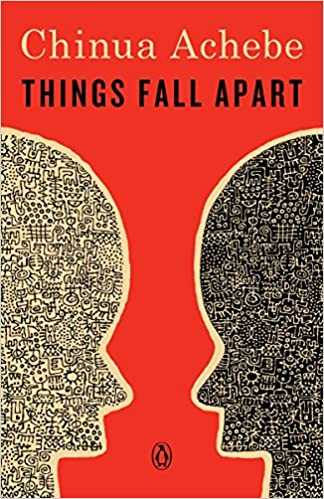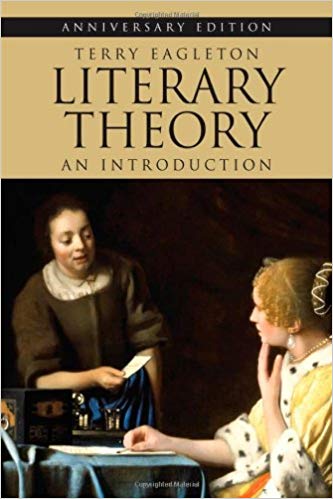Eng. 36001
Spring 2008
T, TR 7:00-8:15 PM, SFH 118
Introduction:
This course aims to introduce you to the major critical approaches available for analysis and appreciation of literary works. The terms theory and literature themselves are not free of controversy and have been defined in numerous, often conflicting, ways. This course will apprise you of the major debates in the field of literary theory and their impact on the critical reading of literature in particular and the real-life culture in general.
We will also discuss the politics and poetics that constitute what we perceive as literary and the role of the academy and popular culture in defining and refuting any hard boundries. In today’s world, literary theory is increasingly in constant embrace with the culture, and this course will take into account the overlaps and the disjunctures between the critical and the cultural theory.
Discussed also will be the role of literature in defining or articulating the world around us, and, in certain cases, the role of literature in normalizing the hegemonic drive of the powerful. Such an approach to literary theory will make us question our own privileged place in the university setting and in the world and help us articulate personal goals of becoming politically aware and culturally diverse world citizens. Throughout this course, we will attempt to relate our in-class activities to the world of the lived experience beyond the university campus.
This is a demanding and writing-extensive course, so please come prepared for a challenging and mentally stimulating experience.
Required Texts:
The Norton Anthology of Literary Theory and Criticism
Eagleton, Terry. Literary Theory: An Introduction, 2nd Edition.
Roy, Arundhati. The God of all Small Things.
Course Policies and Requirements:
Distribution of Points:
Paper 1 200 Points
Paper 2 200 Points
Mid Term 200 Points
Paper 3 300 Points
Participation 100 Points
Total 1000 Points
Mid-Term Exam (200 Points):
The Mid-term will be given in the eighth week. The exam will include three essay questions. You will be expected to use a particular critical approach for each question. I will give you a comprehensive study guide a week before the exam.
Paper 1 (200 Points)
This paper will be from 6-8 pages about an assigned text. You will be expected to have a defined thesis and your analysis will have to use one of the critical approaches discussed in class. While I do encourage using secondary sources, you will not be required to use any texts beyond the critical essays included in Hall. You will be given a detailed handout stipulating the detailed requirements of this assignments. I will be available during my office hours, and by appointment, to conference with you about any aspects of your paper.
Paper 2 (200 Points)
This paper will be from 8-10 pages about any aspects of Ngugi’s novel discussed, or not discussed, in class. You are expected to use a particular critical approach and cite at least FIVE critical essays from peer reviewed academic journals. You will be given a detailed handout stipulating the detailed requirements of this assignments. I will be available during my office hours, and by appointment, to conference with you about any aspects of your paper.
Paper 3 (300 Points)
This is the most important assignment for this course. You will be expected to display mastery of at least two critical approaches in writing this paper. Being the term paper, this paper should be an example of your learning during the course. The paper will be from 10-12 pages on any literary work of your choice, with prior approval, and will require at least TEN academic sources. You will turn in a copy each of two of your most important sources along with your paper. You will be given a detailed handout stipulating the detailed requirements of this assignments. I will be available during my office hours, and by appointment, to conference with you about any aspects of your paper.
Class Participation (100 Points):
As this is a discussion format class, your thoughtful participation is essential to the success of the class. I encourage collegiate, open, and thought-provoking class discussions. Remember, we are all here to learn, so let us share our ideas and knowledge to make this class into a dynamic learning experience. I encourage you to speak-up in the class, not just about the texts but also if you have any suggestions about how to improve our learning during the course.
Attendance:
You are expected to attend the class regularly. You will be in the danger of failing the course if you miss more than FOUR class sessions.
Plagiarism:
Plagiarism is against the law, and will result in automatic failure in the course. Simply stated, plagiarism occurs when you try to pass anyone else’s work as your own or if you turn in your own work written for another class.
ADA:
If you have a disability, please contact the campus ADA office and bring me the necessary documentation. I will try my best to accommodate you if you need any special instruction or assistance.
Grading Scale:
A 950-1000
A- 900-949
B+ 860-899
B 830-859
B- 800-829
C+ 760-799
C 739-759
C- 700-729
D+ 660-699
D 630-659
D- 600-629
F Less than 600 Points
Weekly Class Schedule
Note: This is a tentative weekly schedule. The instructor may change it as and when it
becomes necessary. All such changes will be announced in the class.
Week One
Introduction to the course
Readings:
“What is Literature?” Eagleton
“Intro to Theory and Criticism” (Norton 1-28)
Mathew Arnold, Intro and “The Function of Criticism. . .” (Norton 802-832)
Week Two
NEW CRITICISM AND FORMALISM
Class Discussion: Eagleton and Arnold
Readings:
“The Rise of English” Eagleton
Eliot. Intro & “Tradition and the Indoividual Talent.” (Norton 1088-98)
Ransom. Intro & “Criticism, INC.” (Norton 1105-1118)
Brooks. Intro & “From the Well Wrought Urn.” (Norton 1350-1365)
Week Three
NEW CRITICISM AND FORMALISM
Class Discussion: Eagleton, Eliot, Ransom, Brooks
Readings:
“Phenomenology, Hermeneutics, and Reception Theory” Eagleton
Wismatt. Intro & “The Intentional Fallacy & The Affective Fallacy.” (Norton 1371-1402)
Week Four
READER RESPOSNE CRITICISM
Class Discussion: Eagleton and Wismatt
Readings:
Heidegger. Intro & “Language.” (Norton 118-1134)
Iser. Intro & “Interaction Between Text and Reader.” (Norton 1670-1682)
Barthes. Intro & “The Death of the Author.” (Norton 1466-1470)
Fish. Intro & “Interpreting the Variorum.” (Norton 2071-2089).
Choose topics for Paper 1
Week Five
READER RESPOSNE CRITICISM
Class Discussion: Eagleton, Heidegger, Iser, Barthes and Fish
Paper 1 Topics and Thesis
Readings:
“Structuralism and Semiotics.” Eagleton.
Saussure. Intro and “from Course in General Linguistics.” (Norton 956-977)
Levi-Strauss. (Norton 1415-1427)
Week Six
STRUCTURALISM
Class Discussion: eagleton, Saussure, and Levi-Strauss.
Paper 1 due
Readings:
“Structuralism and Semiotics.” Eagleton.
Frye. Intro and “The Archetypes of Literature.” (Norton 14421457)
Jakobson. Intro & “Linguistics and Poetics.” (1254-1265)
Althusser. (Norton 1476-1509)
Week Seven
STRUCTURALISM
Class Discussion: Eagleton, Frye, Jakobson, and Althusser.
Mid Term Study Guide
Choose topics for Paper 2
Readings:
“Post-Structuralism.” Eagleton.
Nietzsche. Intro and “On Truth and Lying.” (Norton 874-883)
Barthes. “From Work to Text.” (Norton 1470-1476)
Week Eight
POSTSTRUCTURALISM
Class Discussion: Eagleton, Nietzsche, Barthes.
Mid-Term TR
Readings:
Derrida. Intro & “Plato’s Pharmacy.” (Norton 1830-1876)
Foucault. Intro & “What is an Author.” (Norton 1622-1635)
Week Nine
POSTSTRUCTURALISM
Class Discussion: Derrida, Foucault, Eagleton
Paper two Workshop.
Readings:
“Psychoanalysis.” Eagleton.
Freud. Intro & “The Interpretation of Dreams.” (Norton 913-929).
Lacan. Intro, “Mirror Stage” and “Agency of the Letter” (Norton 1278-1302)
Jung. (Norton 987-1002)
Week Ten
PSYCHOANALYSIS
Class Discussion: Eagleton, Freud, Lacan, and Jung
Readings:
Kristeva. (Norton 2165-2179)
Butler. 2485-2501)
Week Eleven
PSYCHOANALYSIS & FEMINISM
Class Discussion: Kristeva and Butler
Paper 2 Due on TR
Readings:
“Conclusion” Eagleton
Cixous (Norton 2035-2056)
Woolf. (Norton 1017-1029)
Roy. The God of Small Things
Week Twelve
Class Discussion: Roy, Cixous and woolf.
Term Paper topics
Readings:
Roy. The God of Small Things
Benjamin (Norton 1163), Gramsci (Norton 1135), Jameson (Norton 1932)
Week Thirteen
MARXISM
Class Discussion: Benjamin Gramsci, and Jameson
Readings:
Achebe (Norton 1781), Fanon (Norton 1575), Said (Norton 1986) and Spivak (Norton 2193)
Week Fourteen
POSTCOLONIALISM
Class Discussion: Achebe, Fanon, Said ,and Spivak.
Concluding Discussion and Workshop on Term papers.
Term papers due on last day of classes.


